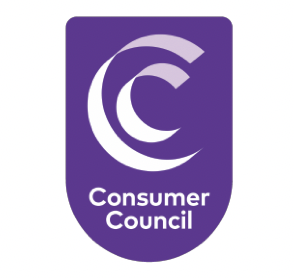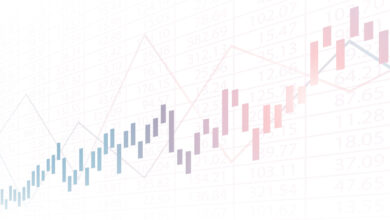An insight into consumer spending and experiences in Northern Ireland

Anne-Marie Murphy, Director of Strategy and Emerging Markets at the Consumer Council for Northern Ireland explains the current consumer experience in Northern Ireland and offers key insights that could help to shape economic growth in the region.
Whilst some positive economic indicators have emerged, disparity in wealth and opportunity is evident in Northern Ireland and many citizens are struggling to make ends meet and cope with financial pressures.
The Consumer Council is the statutory consumer body for Northern Ireland, responsible for representing, protecting, and empowering consumers here. Over the last three years, it has provided advice to and investigated complaints for 30,000 consumers through its helpline and engaged with over 36,000 consumers through outreach.
Through its research and insight programme, the Consumer Council monitors current and emerging issues and their impact on consumers, vital insights that can help to shape policy development and implementation.
Consumer spending in Northern Ireland
64 per cent of Northern Ireland’s economic output is driven by consumer spending and this spending is vital for rebuilding and rebalancing our economy.
In the past two years, consumers have experienced instability such as the energy price crisis, rising food costs, disruption to supply chains, and the rising cost of borrowing. Increasing inflation has eroded purchasing power, making it less likely that consumers have surplus income to spend after covering basic expenses.
The Consumer Council, through its rich consumer insight portfolio, can quantify the impact of these factors on consumer behaviours, their spending activities, and what changes people are making to cope.
For economic prosperity to continue in Northern Ireland, and for the quality of life for our citizens to improve, consumers need realistic and timely interventions, designed with their needs and experiences at the core.
Tracking consumer income and expenditure
The Consumer Council launched its Northern Ireland Household Expenditure Tracker in 2022 which monitors the income and expenditure of all citizens across four income quartiles.
Between January and March 2022, the lowest earning households in Northern Ireland had only £29 left per week after paying for bills and essentials. One year later in January-March 2023, this figure dropped to a stark low of £19, and in the same period of 2024, it rose to £41. This marginal increase provides little relief for consumers in the lowest income quartile. Northern Ireland exhibits vast disparity in experiences and whilst the lowest earners had £41 per week left after bills and expenses, the highest earners had £678 left.
What consumers are experiencing
Economic instability has implications right across the consumer landscape. As purchasing power reduces so does consumer confidence and resilience, which has a detrimental impact on mental health and wellbeing, as our direct consumer engagement can attest to.
Our research published in August 2024 reported that 96 per cent of consumers were concerned about food prices, 95 per cent were concerned about energy costs, 85 per cent were concerned about petrol and diesel prices, and 66 per cent were concerned about product availability and selection in shops. When we asked consumers through focus groups about the impact that rising costs is having on them; they expressed disbelief at how quickly food prices have increased in recent years, and that it has had a negative effect on their mental health including feelings of social isolation.
Consumer behaviour has changed, and continues to change, in response to these conditions.
Just under half the population are dipping into their savings to meet rising costs, nine in 10 consumers have shopped around or switched service providers, and 66 per cent have cut back on eating out. A quarter of consumers said they have had to skip meals or eat fewer times in the day. Our recent deep-dive into the use of ‘buy-now-pay-later’ products in Northern Ireland showed that it is the second most used form of credit in the region, with half of those who used it saying they are using it more because of the increase in the cost of living.
The financial pressures that consumers have faced, and continue to face, cannot be overlooked. Whilst some positive economic indicators suggest signs of recovery, the lived experience demonstrated through our research shows that many consumers continue to face hardship that must be addressed.
“The financial pressures that consumers have faced, and continue to face, cannot be overlooked. Whilst some positive economic indicators suggest signs of recovery, the lived experience demonstrated through our research shows that many consumers continue to face hardship that must be addressed.”
Looking to the future
Confident consumers drive competitive markets and economic prosperity. Together, we must ensure that consumers have the support, access to markets, choice, necessary consumer protection and the opportunity to avail of the products and services that they need and want and to experience a good quality of life.
Whilst the challenges that lie ahead for Northern Ireland’s decision makers are momentous in improving the lived experience of consumers, positive pathways continue to emerge. We welcome the return of the Executive and look forward to working together and sharing our insight. The Department for the Economy’s economic mission published in February 2024 sets out four pillars for growth: good jobs; regional balance; productivity; and net zero – all themes that the Consumer Council supports and contributes to.
As we have always done, the Consumer Council will travel this uncharted journey with consumers, representing their needs and views through our direct consumer engagement and representative research, and using this to advocate on their behalf, and help them directly through our services in complaints investigations and empowerment.
We will continue to work with governments and policy makers, locally and further afield, making sure that consumer journeys and experiences frame policy, legislation, regulation and interventions.

T: 0800 121 6022
E: info@consumercouncil.org.uk
W: www.consumercouncil.org.uk





